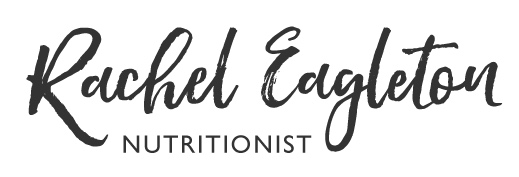Sports Nutrition for Teenagers
/Do you have sporty teenagers? Worried whether they are fuelling right for their sport?
With the winter sports season kicking off, you might be wondering if your teenagers are eating the right types of food to support healthy growth and development as well as their training and competition. It's not all about protein powder to get "shredded", or litres of sweet sports drinks!
What should they drink?
Dehydration can impact performance by causing fatigue and impact decision-making and accuracy. It's important that players start training and matches well hydrated - pale urine is a good sign. You can't just top up fluid stores right before the match - get them into the habit of accompanying each meal and snack with a glass of water or milk. When I pointed out that being properly hydrated would improve accuracy at the basketball/netball hoop this idea became a lot more appealing with my kids. Keeping drinks chilled make them more palatable.
Generally most teenagers don't need sports drinks on the field and water should be sufficient. If the competition is a multi-event tournament, sports drinks can be useful between events to refuel with carbohydrates, electrolytes and fluid. Milk is also a great choice between events as it provides protein as well as carbs. It's important to point out to your teenagers that energy drinks are NOT the same as sports drinks and should not be consumed around sporting activities.
What should they eat?
Carbohydrates
Carbohydrate rich foods such as good quality bread, wholegrain cereal, rice and pasta, fruit and starchy veggies need to be eaten at frequent intervals each day as they provide most of the brain and body's fuel. Carbohydrates keep blood sugar levels consistent and help concentration. To help maximise muscle uptake of carbohydrates, heavier training loads should be balanced with higher carbohydrate intakes, both before and after training.
Protein
Protein rich foods are important for growth and muscle repair. Great sources of lean protein include eggs, dairy foods, lean meat and chicken, fish, baked beans, tofu and legumes. Your body can't store protein so it needs to be consumed regularly throughout the day - make sure each snack and meal has a source of protein. After heavy training or competition a snack or meal with protein and carbohydrates will help muscle recovery. A popular post training snack at my house is chocolate milk or eggs on toast. I've written more about coping with hungry teens here.
Important micronutrients
IRON
Sporty teenagers - particularly female or vegetarian - involved in intensive training programs can be at risk of developing iron deficiency. Early stages of iron depletion can reduce performance capacity, particularly during aerobic activity. If untreated, low iron levels can develop into iron deficiency anaemia which can leave them feeling lethargic and unable to perform at their best.
The RDI of iron for 14-18 year olds is 11mg/d (boys) and 15mg/d (girls). Good sources of iron include red meat, pork, chicken, eggs, fish, some fortified breakfast cereals and some fortified beverages and baked beans. Read more about vegetarian teenagers here.
Calcium and Vitamin D
Calcium and vitamin D are both required for good bone health. The RDI of calcium for teenagers is 1300mg which is about 3.5 serves of calcium rich foods such as milk, cheese, yoghurt or fortified soy products. Most vitamin D is obtained through exposure to sunlight rather than diet.
Strong not Skinny
Parents and coaches have an important role in helping teenagers see that nutrition should be focussed on long-term health rather than body composition, which is only one of multiple factors needed for sporting success. Teaching your teenagers how to shop, prepare and cook food is a lifelong skill. Here's a simple family friendly meal for them to learn.
If you've got a teenager engaged in high level sport you can read more here.
If you'd like to know more about my "eating right for your sport" package then click here.
After family-friendly recipes? Then head here.
sources: Sports Dietitians Australia position statement: sports nutrition for the adolescent athlete.


















